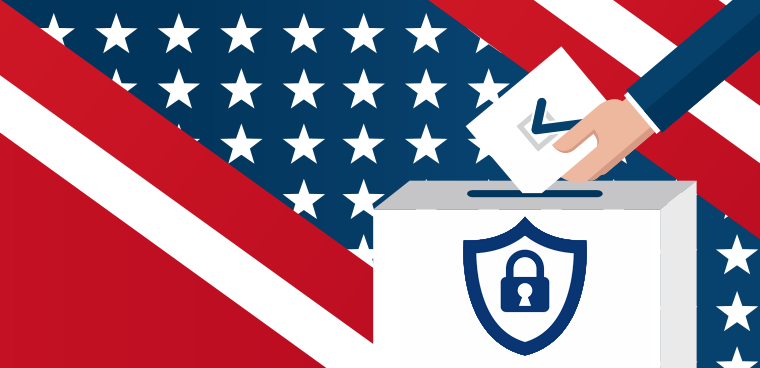Election security bills face hurdles in 2019
House Democrats will likely push new election security legislation in 2019, but obstacles remain in the Senate and the White House.

House Democrats will likely push new election security legislation in 2019 when they take over the majority, but obstacles remain in the Senate and the White House. On the administrative side, the Department of Homeland Security and state governments will look to build on cooperative efforts that resulted in the apparently successful 2018 mid-term elections.
In the wake of the 2016 elections, state governments, experts and members of Congress have beat the drum for federal legislation to comprehensively address critical cybersecurity flaws in the nation's election systems. Even after an infusion of $380 million in leftover Help America Vote Act grant funding earlier this year, many states say they continue to face major funding challenges.
Earlier this year, Rep. Bennie Thompson (D-Miss.), incoming chair for the House Homeland Security Committee, called the grants "a drop in the bucket" compared to what is needed to secure election systems nationwide. Thompson filed legislation in February that would establish an ongoing pot of money for states to draw from through 2025, phase out reliance on paperless voting machines and boost the number of states who use risk limiting audits to ensure the integrity of election results.
When Rep. Nancy Pelosi (D-Calif.) is sworn in as Speaker of the House in January, one of her first actions is expected to be H.R. 1, a massive piece of legislation that seeks major reforms campaign finance laws, gerrymandering and expanding access to the vote. Large elements of Thompson's bill, in particular regular grant funding for security upgrades, are also expected to be included in the package, according to aides on the House Homeland Security Committee.
While that will provide a vehicle for election reform to pass the House, it will likely only represent the opening gambit, as the Republican-controlled Senate is expected to reject the measure, if they even bring it to the floor.
Thompson plans to use his committee's oversight powers to hold regular hearings to keep the election security issue in the.
"Democrats will continue to lead on cybersecurity and will look into all threats to our elections as soon as we take charge in January," he said.
There is bipartisan support in the Senate for the Secure Elections Act, sponsored by Sens. James Lankford (R-Okla.) and Amy Klobuchar (D-Minn.) However, Republican leaders have thus far refused to pass the bill out of committee after organizations like the National Association of Secretaries of State and the White House complained about federal mandates around grant funding and auditing.
Some Democratic lawmakers say the White House, not a lack of votes, are the chief obstacles to passing election security reform.
"I don't make political predictions that often, but I bet if [the Secure Elections Act] got to the floor it would get at least 80 votes in the Senate and with the Democrats taking control of the House, it would clearly pass the House," said Sen. Mark Warner (D-Va.) on Dec. 7. "The objection has come from the White House and what I would hate to have is some other event where we see…an intervention to then force us to act."
Lankford has said, White House officials have been "clear" that they were attempting to alter, not sink, the bill. A spokesperson for Sen. Roy Blunt (R-Mo.) told FCW in August that Republican Senators were also wavering on the bill before it was pulled.
Beyond legislation, state governments continue access DHS resources, including such as sensors around election infrastructure and vulnerability scans. Chris Krebs, director of the department's cyber wing, has praised the improved relationship between states and DHS over the past two years, saying it can serve as a model for future cybersecurity cooperatives between the federal government, states and industry.
The agency has also taken steps to publicly encourage state governments to discontinue their reliance on paperless Direct Recording Electronic machines, which experts believe are all but impossible to effectively audit for signs of vote manipulation. Krebs has said "the market is moving away" from DRE's as states and vendors adapt to heightened security expectations.
Only 14 states still use them and in the past two years, Virginia and Pennsylvania have mandated that all counties move to paper-based machines, while a lawsuit in Georgia may force state officials to do the same before the 2020 elections.
One event that could spur further action is an interagency assessment due to be completed early next year between intelligence agencies, the Department of Justice and DHS detailing whether there is any evidence of foreign-directed interference in the 2018 elections.
The Office of the Director of National Intelligence confirmed to FCW that it will pass its assessment along to DHS and DOJ on Dec. 21, and those agencies will have 45 days to conduct their own assessment. If all parties agree, automatic economic, diplomatic and travel sanctions would kick in for any affected countries or entities.





